Comprehensive Guide to Garden Maintenance in Nunhead

Maintaining a beautiful garden in Nunhead requires dedication, knowledge, and the right tools. Whether you’re a seasoned gardener or just starting out, effective garden maintenance can transform your outdoor space into a serene and vibrant haven.
Nunhead, located in the heart of London, offers a unique environment for gardening enthusiasts. The combination of urban living and green spaces makes garden maintenance both a rewarding and challenging task.
In this guide, we will explore various aspects of garden maintenance in Nunhead, providing you with the necessary tips and techniques to keep your garden thriving all year round.
Understanding the Climate and Soil in Nunhead
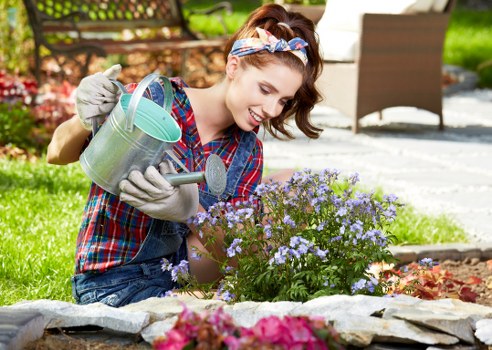
The first step in successful garden maintenance is understanding the local climate and soil conditions. Nunhead experiences a temperate climate, with mild winters and warm summers, which influences the types of plants that can thrive in this area.
The soil in Nunhead is typically clay-based, which retains moisture well but can sometimes lead to poor drainage. To improve soil quality, consider adding organic matter like compost or well-rotted manure. This not only enhances soil fertility but also ensures better plant growth.
Regular soil testing is recommended to monitor pH levels and nutrient content. Adjusting the soil pH can make a significant difference in plant health, ensuring that your garden flourishes throughout the year.
Planning Your Garden Layout
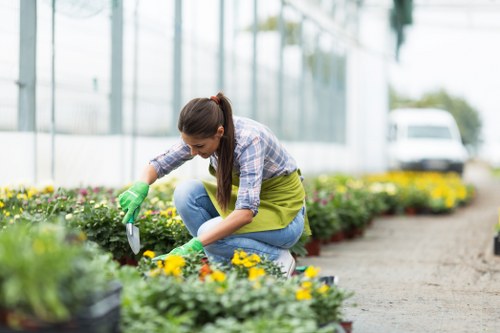
A well-planned garden layout is crucial for efficient maintenance. Start by mapping out your garden space, taking note of sunlight exposure, shade areas, and existing vegetation. This will help you decide where to plant different types of plants based on their sunlight and water requirements.
Consider incorporating a mix of perennial and annual plants to ensure continuous blooms and greenery. Perennials provide a stable structure to your garden, while annuals offer bursts of color and variety.
Grouping plants with similar care needs together can simplify maintenance tasks such as watering, weeding, and pruning. Additionally, using raised beds or container gardening can enhance accessibility and improve soil conditions.
Essential Garden Maintenance Tasks
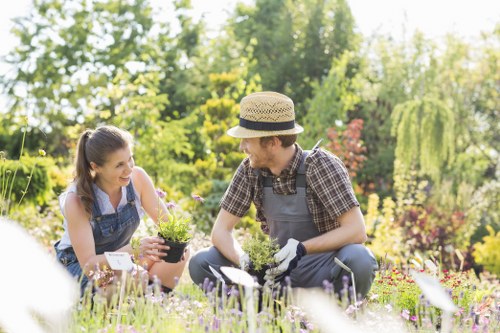
Regular garden maintenance involves a variety of tasks that keep your garden healthy and attractive. Here are some essential maintenance activities to include in your gardening routine:
- Watering: Ensure your plants receive adequate water, especially during dry spells. Early morning is the best time to water to minimize evaporation.
- Weeding: Remove weeds regularly to prevent them from competing with your plants for nutrients and water.
- Pruning: Trim dead or overgrown branches to encourage healthy growth and improve the appearance of your plants.
- Fertilizing: Apply appropriate fertilizers to provide essential nutrients to your plants, promoting robust growth.
- Pest Control: Monitor your garden for pests and diseases, and take action promptly to prevent infestations.
By staying on top of these tasks, you can ensure that your garden remains a vibrant and enjoyable space.
Seasonal Garden Maintenance Tips
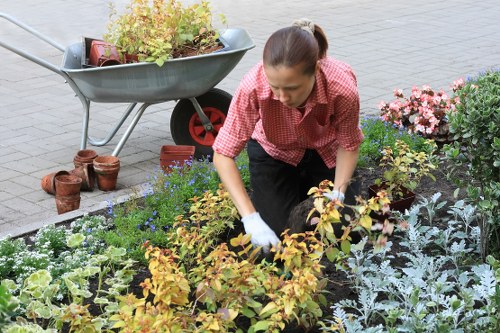
Each season brings its own set of challenges and opportunities for garden maintenance. Adapting your gardening practices to the changing seasons can help maintain the health and beauty of your garden all year round.
Spring: Focus on planting new flowers and vegetables, pruning shrubs, and preparing soil by adding compost. It's also a great time to fertilize your plants and protect them from emerging pests.
Summer: Ensure consistent watering, especially during heatwaves. Mulch your garden beds to retain moisture and reduce weed growth. Regularly deadhead flowers to encourage continuous blooming.
Autumn: Clean up fallen leaves, plant bulbs for spring blooms, and protect sensitive plants from early frost. This is also the time to start planning for next year's garden layout.
Winter: Prune dormant plants, protect tender plants with coverings, and plan your garden for the upcoming year. Maintain garden tools and equipment to ensure they are ready for spring.
Choosing the Right Plants for Nunhead Gardens

Selecting the right plants is vital for a thriving garden in Nunhead. Opt for plants that are well-suited to the local climate and soil conditions. Here are some popular choices:
- Roses: Classic and beautiful, roses thrive in Nunhead’s climate with proper care and pruning.
- Lavender: This fragrant herb is drought-resistant and adds a lovely scent to your garden.
- Hostas: Ideal for shaded areas, hostas provide lush foliage and come in various colors and sizes.
- Geraniums: These bright flowers are perfect for adding vibrant color to garden beds and containers.
- Boxwood: A versatile shrub that can be shaped into hedges or topiaries, adding structure to your garden.
Incorporating a variety of plants ensures a dynamic and resilient garden, capable of withstanding pests and varying weather conditions.
Maintaining Garden Tools and Equipment
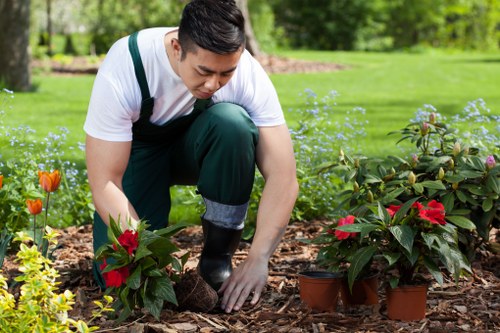
Proper maintenance of your garden tools and equipment is essential for efficient garden upkeep. Regularly clean and sharpen your tools to keep them in good working condition. Store them in a dry place to prevent rust and damage.
Investing in quality tools can make gardening tasks easier and more enjoyable. From pruners and trowels to lawnmowers and irrigation systems, having the right tools at your disposal can significantly enhance your garden maintenance efforts.
Additionally, consider organizing your tools after each use to prolong their lifespan and ensure they are readily accessible when needed.
Eco-Friendly Garden Maintenance Practices
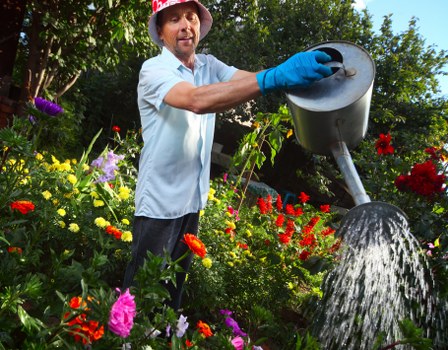
Adopting eco-friendly garden maintenance practices not only benefits the environment but also promotes a healthier garden. Here are some sustainable practices to consider:
- Composting: Recycle kitchen scraps and garden waste into nutrient-rich compost to enrich your soil naturally.
- Rainwater Harvesting: Collect rainwater to use for watering your plants, reducing dependency on tap water.
- Organic Pest Control: Use natural remedies and beneficial insects to manage pests without harmful chemicals.
- Mulching: Apply organic mulch to conserve soil moisture, suppress weeds, and improve soil health.
- Native Plants: Incorporate native plant species that are well-adapted to the local environment and require less maintenance.
Implementing these practices can create a sustainable and thriving garden while minimizing your environmental footprint.
Dealing with Common Garden Pests in Nunhead
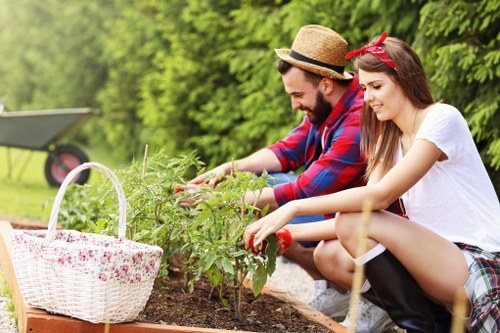
Gardening in Nunhead comes with its share of pest challenges. Common garden pests include aphids, slugs, snails, and caterpillars. Identifying and managing these pests promptly is crucial to prevent damage to your plants.
Aphids: These small insects feed on plant sap, causing leaves to curl and become distorted. Introduce natural predators like ladybugs or use a strong water spray to remove them.
Slugs and Snails: These pests can quickly decimate young plants. Use organic slug bait, create barriers with crushed eggshells, or handpick them during damp conditions.
Caterpillars: They can defoliate your plants rapidly. Introduce beneficial insects like birds or use natural repellents to keep them in check.
Creating a Sustainable Garden in Nunhead
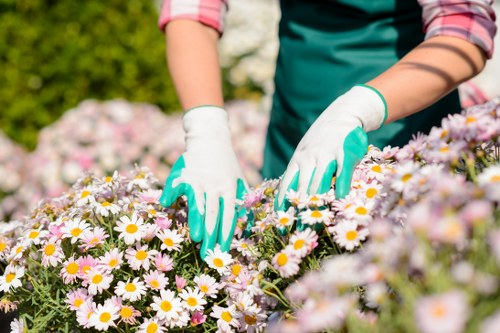
A sustainable garden is one that is environmentally responsible and resource-efficient. In Nunhead, creating a sustainable garden involves using practices that support biodiversity, conserve resources, and minimize waste.
Start by selecting native plants that require less water and are more resistant to local pests. Implementing a rainwater harvesting system can reduce water usage, while composting helps recycle organic waste into valuable soil nutrients.
Additionally, embracing organic gardening methods eliminates the need for synthetic fertilizers and pesticides, promoting a healthier ecosystem for both plants and wildlife.
10 Nearby Areas to Nunhead for Garden Maintenance Services
Nunhead is surrounded by several vibrant neighborhoods, each offering unique features that can enhance your garden maintenance experience. Here are ten nearby areas to Nunhead:
- Crystal Palace: Known for its expansive parklands and community gardens.
- Honor Oak: Offers a mix of residential gardens and public green spaces.
- East Dulwich: Features a variety of plant nurseries and garden centers.
- Forest Hill: Home to beautiful parks and garden maintenance services.
- South Dulwich: Renowned for its well-kept private gardens and greenhouses.
- Sydmonton: Offers serene garden spaces and expert gardening advice.
- Penge: Known for its diverse botanical collections and community gardens.
- Herne Hill: Features lush green spaces and professional garden services.
- West Dulwich: Offers extensive garden areas and maintenance resources.
- East Dulwich Village: Known for its charming gardens and local horticultural experts.
Each of these areas provides unique opportunities and resources for garden enthusiasts looking to maintain or enhance their green spaces.
Conclusion
Maintaining a garden in Nunhead is a fulfilling endeavor that brings beauty and tranquility to your home. By understanding the local climate, planning your garden layout, performing essential maintenance tasks, and adopting sustainable practices, you can create a thriving garden that stands the test of time.
Additionally, leveraging the resources and services available in nearby areas can further enhance your gardening experience. Whether you're cultivating a small balcony garden or a spacious backyard, the principles of garden maintenance discussed in this guide will help you achieve a lush and vibrant outdoor space.
Embrace the joys of gardening in Nunhead, and watch your garden flourish with care and dedication.
Frequently Asked Questions
1. What are the best plants for a shady garden in Nunhead?
Plants like hostas, ferns, and impatiens thrive in shady conditions and are ideal for gardens with limited sunlight in Nunhead.
2. How often should I water my garden in Nunhead?
Generally, watering deeply once or twice a week is sufficient, but during hotter months, more frequent watering may be necessary. Always adjust based on weather conditions and plant needs.
3. What organic fertilizers are recommended for Nunhead gardens?
Composted manure, bone meal, and fish emulsion are excellent organic fertilizers that provide essential nutrients to your plants without harmful chemicals.
4. How can I attract pollinators to my Nunhead garden?
Planting a variety of nectar-rich flowers, providing habitats like bee hotels, and avoiding pesticides can help attract and support pollinators such as bees and butterflies.
5. What are some eco-friendly pest control methods for gardens?
Using natural predators, applying neem oil, setting up barriers, and maintaining plant health through proper care are effective eco-friendly methods for controlling garden pests.